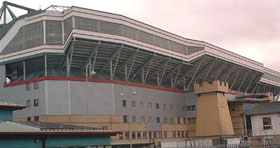|
But can you make cheese out of it?
"Some spiders produce milk – and it’s more nutritious than cow’s milk
adult spider
Meet the milk-producing spider
Zhanqi Chen et al.
By Yvaine Ye
"Spider babies may be more like our infants than we thought. Mother spiders can produce nutritious milk-like fluids to feed their offspring.
"Juvenile spiders eat all kinds of food: in some spider species they feed on small insects, and in others they catch pollen. Previous research has also found some spiders simply don’t eat anything until they grow large enough to hunt.
"But Toxeus magnus, a type of jumping spider native to Southeast Asia, must be doing something else. Its young grow shockingly fast – they reach almost half adult size in the first 20 days of their life – but neither the youngsters nor the mother leaves the nests to gather food.
"“We couldn’t figure out how they just keep growing without food until one night, I saw a baby spider clinging onto its mom’s belly,” Zhanqi Chen at Chinese Academy of Science says. “I had this radical idea that maybe spider moms feed their babies with something they produced.”
"So Chen and his colleagues put mother spiders under the microscope and gently squeezed their abdomens. A few droplets of a creamy white fluid came out, something that looked very similar to human or other mammalian milk. Analysis found the milk-like liquid contains fat – and about four times as much protein as cow’s milk.
"When the team physically prevented the mother spiders from excreting the nutritious liquid, baby spiders died in 10 days. It means the “milk” is indispensable for the survival of newborn spiders.
"Moreover, although young T. magnus start hunting for food 20 days after hatching, they don’t wean until they are 40 days old. During that period, juveniles eat a mixture of spider milk and insects, just like human babies ingest milk and complementary food.
"When the team removed the mother spiders at this stage, orphan spiders had a 40 per cent lower survival rate than those with their mothers around.
"Milk secretion is a process exclusive to mammals. Even so, the researchers have named the new liquid spider milk. They say it seems to serve the same purpose as mammalian milk – nourishing very young animals.
"Chen says it’s unclear how the spiders yield such nutritious liquid. He suspects the milk may be made from unfertilised eggs that the mother spider has recycled. We already know that some other invertebrates feed their offspring with such unfertilised eggs.
"What’s even more surprising is that maternal care in this spider can influence the sex ratio among the offspring. When the mothers remained present in the nests after day 20, on average about 84 per cent of the youngsters surviving to adulthood were female. If the mother was removed, not only did fewer youngsters survive, but the females took a larger hit so that only about half of the surviving offspring were female.
"“A higher female sex ratio is beneficial to the population,” Chen says. “More females mean more offspring.” He observed mother spiders allowing daughters to return to the nests after they become adults but attacking sons that tried to come back.
"Prolonged maternal care into offspring’s adulthood had only been observed in long-lived social vertebrates, like elephants and humans. It’s still unclear why these eight-legged invertebrates would devote so much time and effort to raising their young.
"“It’s possible that life is tough in the wild,” Chen says. “Maybe spider babies need to learn more skills before they can survive on their own.”
Journal reference: Science, DOI: 10.1126/science.aat3692
|




